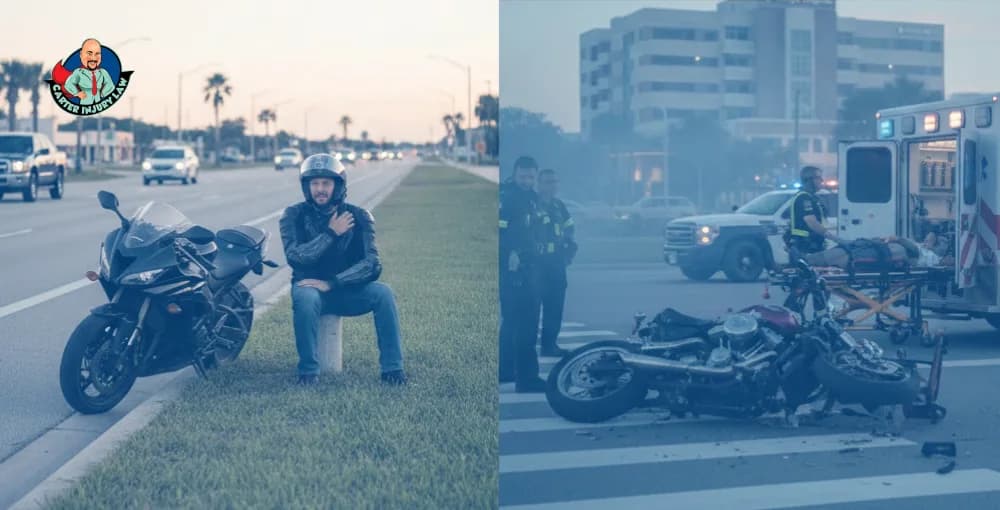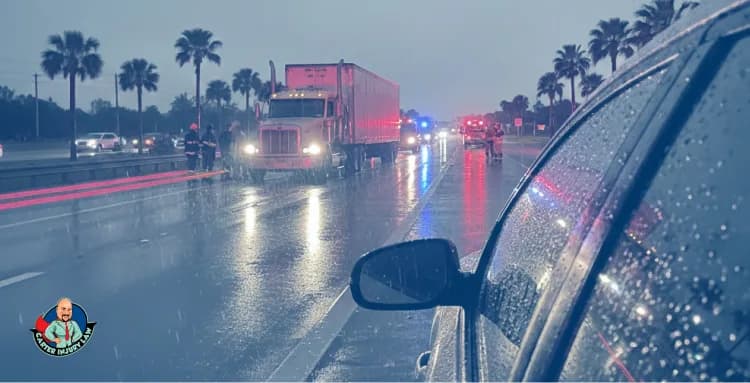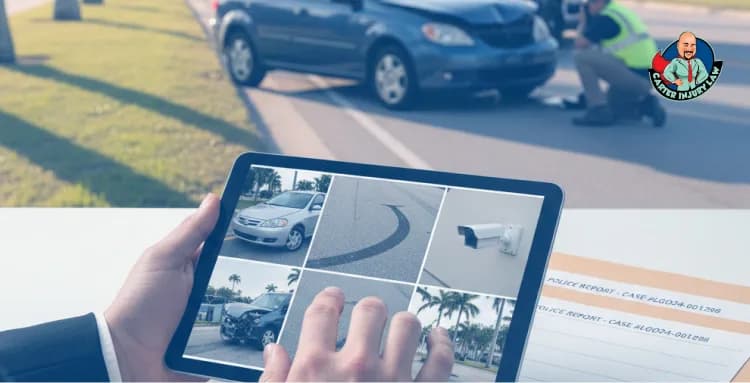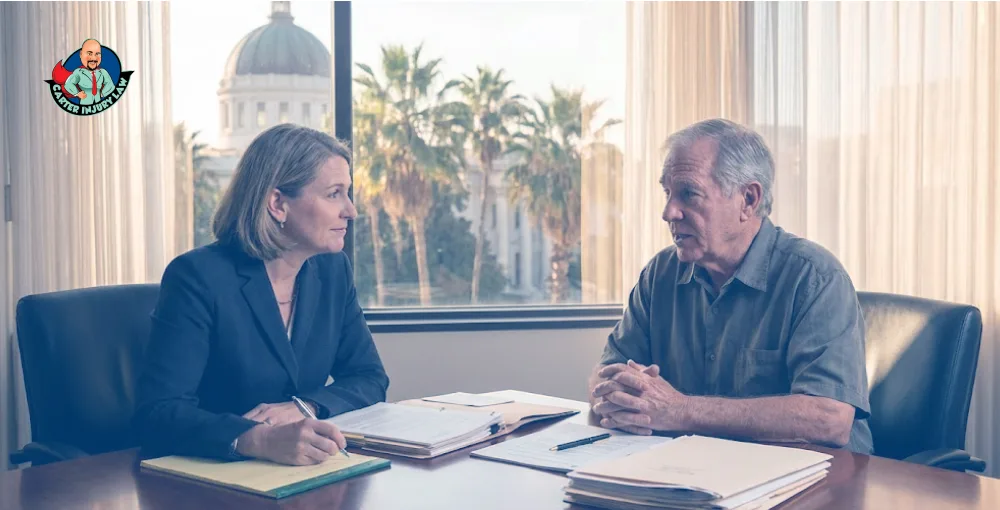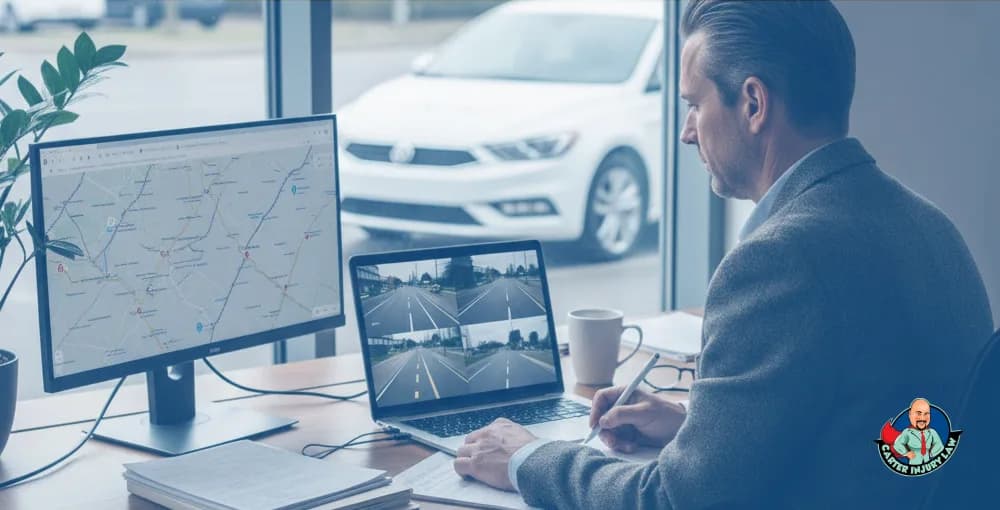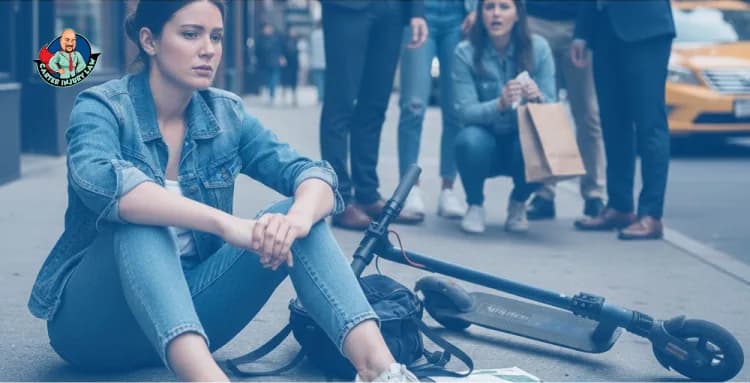Highways in Florida see thousands of trucks every day, and most of the time their cargo makes it to its destination without trouble. However, when freight is not properly secured, the consequences can be catastrophic. A sudden cargo shift can knock a rig off balance, spread debris across lanes, or send heavy loads crashing into other vehicles. These accidents often leave drivers and passengers with serious injuries, costly repairs, and more questions than answers. Chief among them is who is actually liable when freight causes a crash in Florida?
The answer depends on how the cargo was loaded, secured, and inspected; responsibility may fall on the driver, the trucking company, the shipper, or even the manufacturer of the equipment used to hold the load in place. Florida law is clear that loads must be secured, yet real-world accidents often involve layers of responsibility that require close investigation.
So, let’s break down the rules, the potential parties at fault, and the legal options available if unsecured freight turns a routine trip into a life-altering event.
(1) What Does “Cargo Shift” Mean in Truck Accidents?
A cargo shift happens when freight inside or on top of a vehicle moves suddenly while in transit. The load may slide, roll, topple, or spill onto the road. Even a few inches of movement inside a trailer can destabilize a heavy truck and cause the driver to lose control. On flatbeds, improperly strapped machinery or building materials can slide off and strike nearby cars. In other cases, loose gravel, sand, or waste can scatter across the highway, forcing drivers to swerve and creating chain-reaction collisions.
The causes are often simple but serious. Freight may be stacked unevenly, secured with worn straps, or braced with the wrong materials. Sometimes the load is too heavy for the restraints chosen, and sometimes it is not checked after the first miles of a trip when vibrations loosen the bindings. Each of these errors can turn a routine haul into a hazard for everyone sharing the road.
These crashes are not rare. Florida’s busy freight corridors, from I-95 to I-75, have seen multiple accidents traced back to unsecured or poorly balanced cargo. The state recognizes the danger, which is why it has written strict rules into law about how loads must be secured. Understanding those rules is the first step in figuring out who may be at fault when cargo causes a crash, and that is where we turn next.
(2) Florida Laws on Load Securement
The core rule is found in Florida Statute § 316.520, which makes it illegal to drive a vehicle unless the load is secured in a way that prevents it from falling, shifting, or leaking. Both the driver and the owner of the vehicle are held separately responsible. That means blame is not limited to the person behind the wheel.
Some key points from the statute:
No leaks or spills: loads must be contained so nothing escapes onto the roadway.
Covers for loose material: trucks carrying sand, gravel, trash, or similar materials must use tarps or other coverings.
Compliance with federal rules: Florida incorporates the federal cargo securement standards issued by the Federal Motor Carrier Safety Administration, which set the minimum strength and number of tie-downs required.
Penalties: A violation can bring a traffic citation. If it is done willfully and leads to serious injury or death, it can be charged as a criminal misdemeanor.
For commercial vehicles, the FMCSA rules go even further. They require drivers to inspect cargo before starting a trip, re-check it within the first 50 miles, and continue to inspect it at set intervals. These rules recognize that securement is not a one-time task but an ongoing duty.
When a crash happens, investigators look closely at whether these state and federal standards were ignored. If they were, that opens the door to liability. However, the bigger question is whose shoulders that liability falls on. Was it the driver who skipped an inspection, the company that cut corners on equipment, or the shipper who stacked the load poorly?
(3) Who Can Be Held Liable When Freight Causes a Crash?
When cargo shifts and triggers an accident in Florida, responsibility rarely falls on a single party. Liability is shared across the chain of people and companies who touched the freight. To understand how fault is assigned, it helps to break down the key players.
The Driver
Truck drivers have a legal duty to inspect and secure their loads. They must check before departure, reinspect shortly after starting the trip, and keep an eye on the cargo at scheduled stops. If a driver ignores these responsibilities or drives recklessly with an unstable load, they may be held personally liable.
The Trucking Company
Carriers are responsible for more than just keeping trucks on the road. They must supply proper securement equipment, enforce safety policies, and train drivers on cargo rules. If a company pressures drivers to rush or skips maintenance on straps and anchor points, it can be found negligent. Florida law also allows companies to be held vicariously liable for their drivers’ mistakes while on duty.
The Shipper or Loader
Often, freight is loaded at warehouses or docks by third parties. If cargo is stacked unevenly, overpacked, or left unsecured before a driver even starts the trip, the shipper or loader may share liability. Courts look at whether the shipper created a hidden danger that the driver could not reasonably detect.
Manufacturers of Equipment
In some cases, the securement devices themselves are at fault. A defective strap, chain, or anchor system that fails under normal use can shift liability to the manufacturer. While less common, product liability claims can arise when equipment fails to meet safety standards.
Shared Responsibility
Many cargo shift accidents involve multiple failures. A shipper may load incorrectly, a driver may skip an inspection, and a company may fail to enforce proper training. Florida’s comparative negligence system allows fault to be divided, which means several parties may pay a share of damages.
(4) What to Do If You’re in an Accident Caused by Unsecured Cargo in Florida
Your first priority is safety. Move to a secure location if possible, turn on hazard lights, and check yourself and passengers for injuries. If anyone is seriously hurt, call 911 immediately. Avoid moving injured individuals unless there is an immediate danger, such as fire or oncoming traffic.
It is critical to gather accurate information at the scene. Such as,
Photographs and videos: take clear pictures of the accident, the cargo involved, any damage to vehicles, skid marks, and road conditions.
Witness information: collect names and contact information from anyone who saw the crash.
Police report: request a copy or the report number from responding officers, as it often contains official observations about cargo securement.
Report the accident to your insurance company as soon as possible. Provide factual information without speculation. Even if injuries seem minor, a medical evaluation is essential. Some cargo-related injuries, like whiplash or internal trauma, may not show immediate symptoms but can impact claims and recovery later.
(5) Why You Need Carter Injury Law On Your Side After Florida Truck Accident
In my experience, they almost always involve multiple parties like drivers, trucking companies, shippers, and sometimes even the manufacturers of the equipment used to secure the load.
Expert Legal Process for Proving Negligence
From a legal standpoint, proving negligence in a cargo shift case demands a thorough investigation. We examine how the cargo was secured, review pre-trip and in-transit inspection logs, consult with accident reconstruction experts, and collect witness statements and photographic evidence. A case built on solid documentation and facts is always stronger in court or settlement negotiations.
Recovering Compensation from Truck Accidents
Over the years, I have helped numerous victims of truck accidents caused by unsecured freight recover compensation for medical bills, lost wages, property damage, and pain and suffering. Each case is unique, and the strategy must be tailored to the specific circumstances and parties involved.
Contingency Fees and Free Case Evaluation for Accident Victims
I also understand the financial hardship that follows a serious accident. That is why we operate on a contingency fee basis. You pay nothing unless we recover compensation for you. We provide a free case evaluation to review your situation, explain your options, and outline the steps ahead without any obligation.




